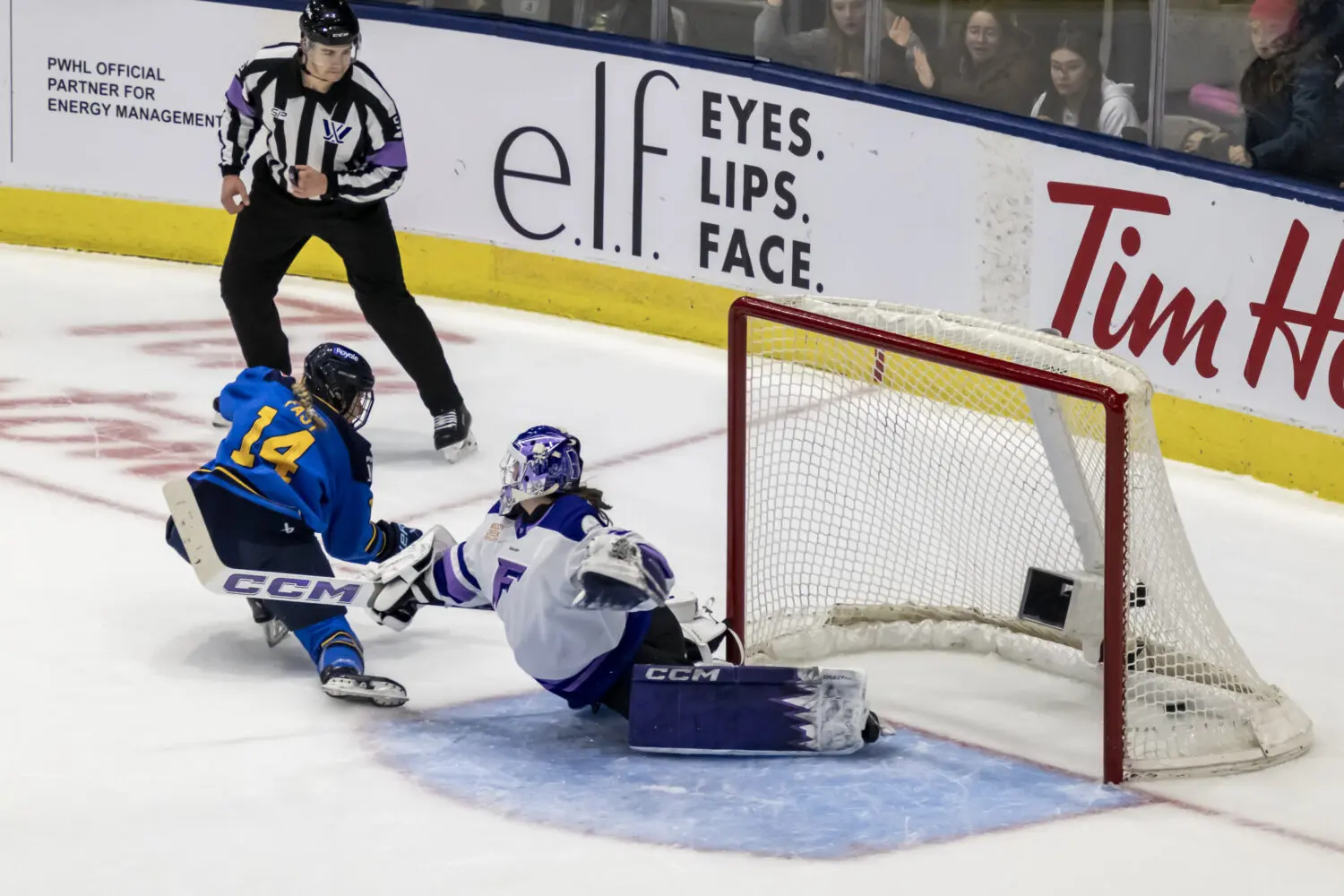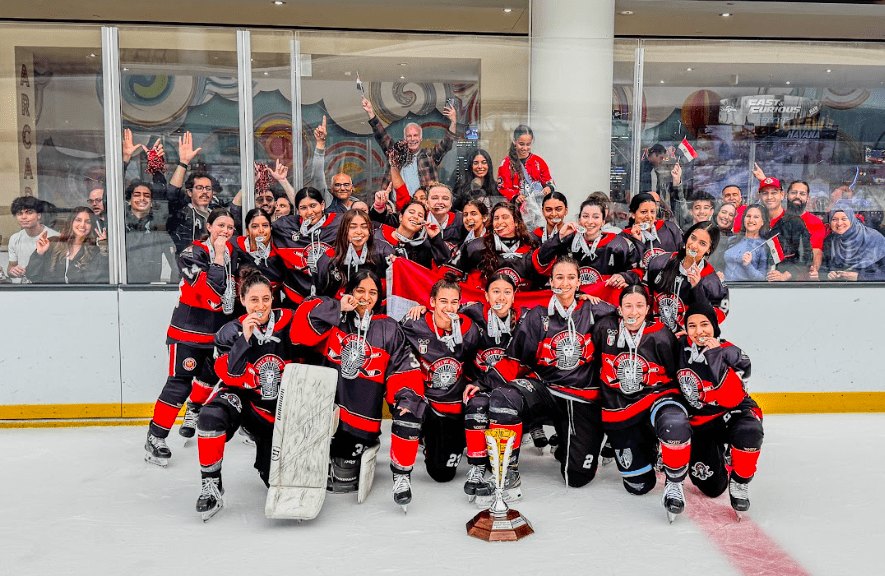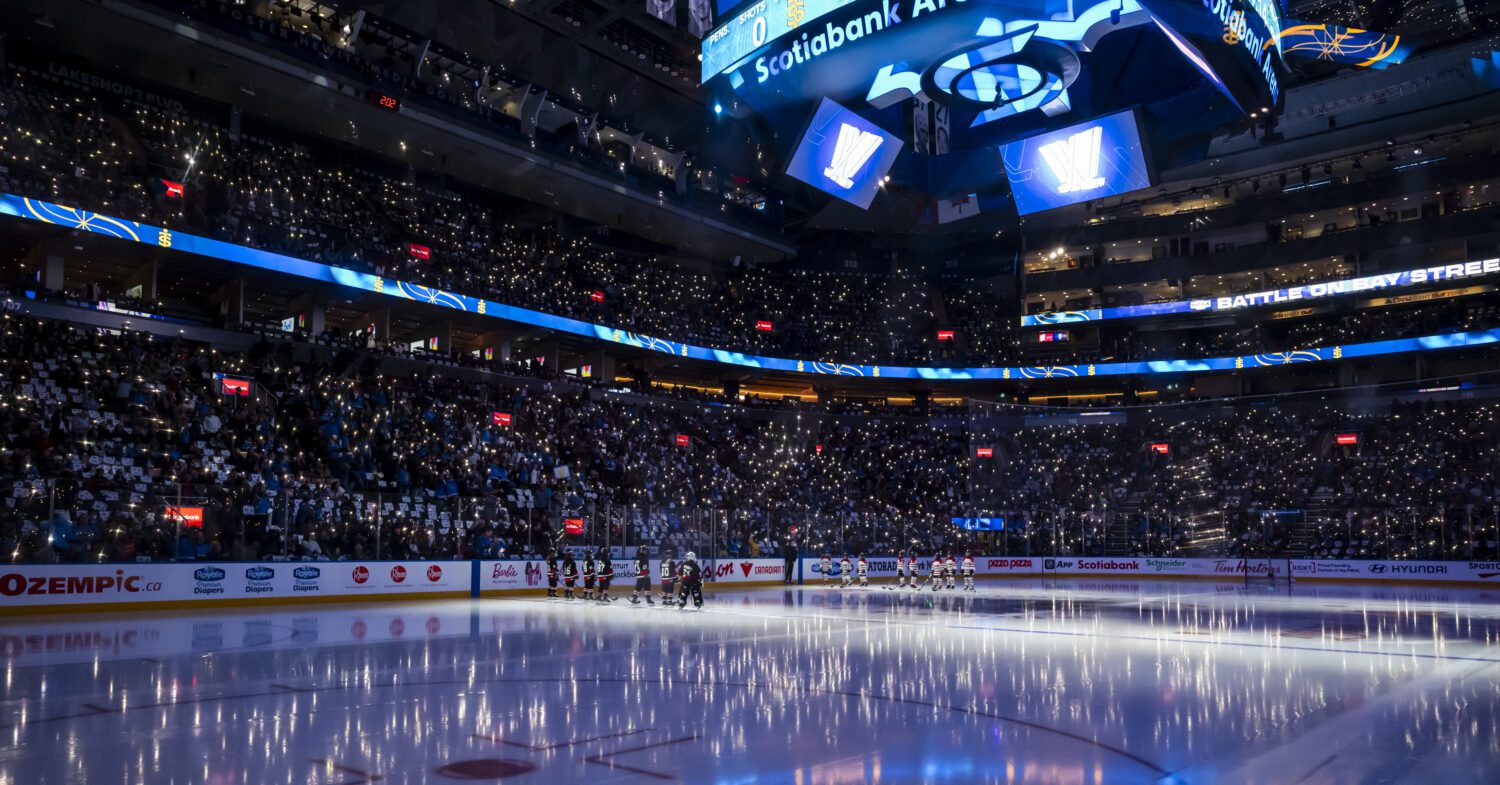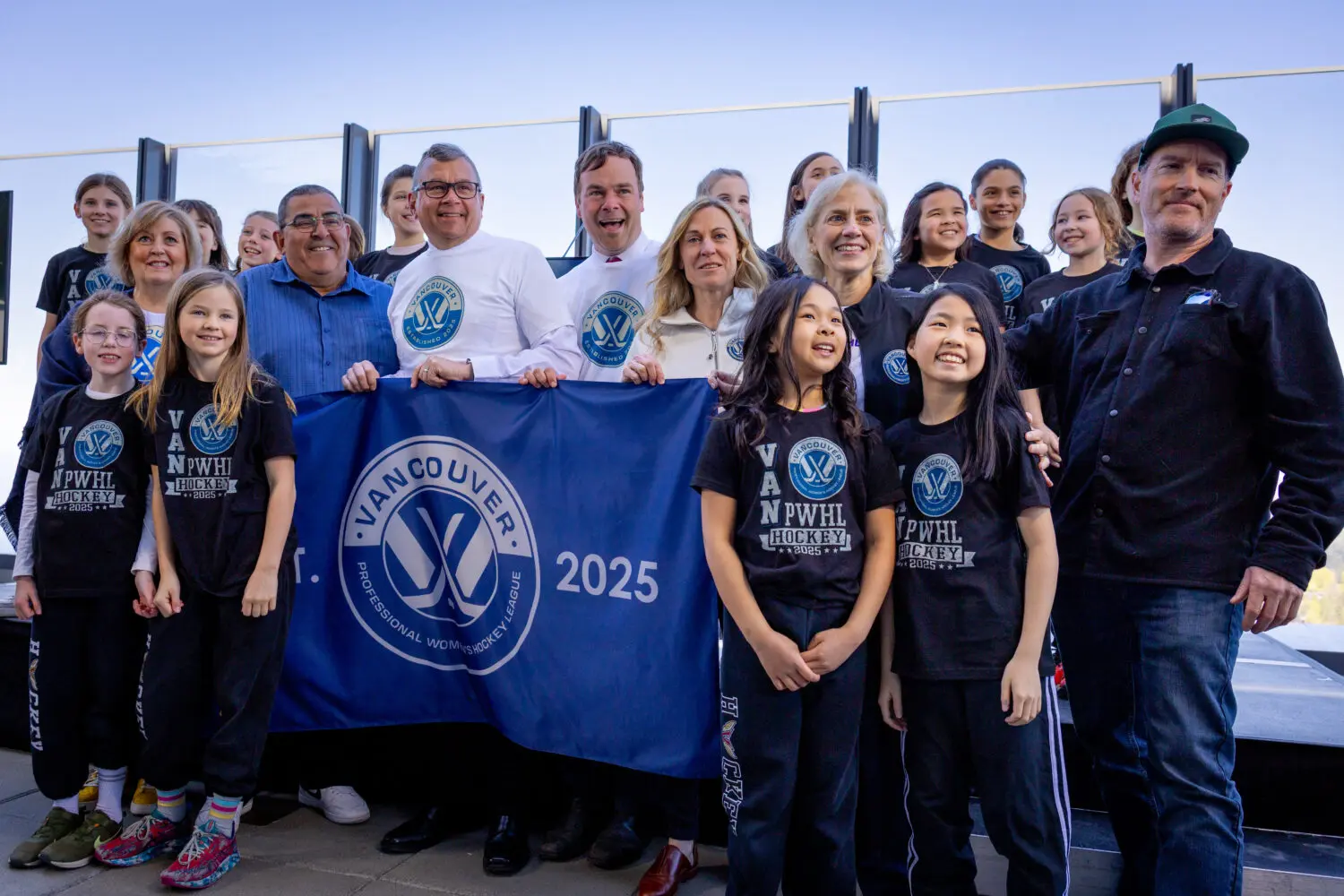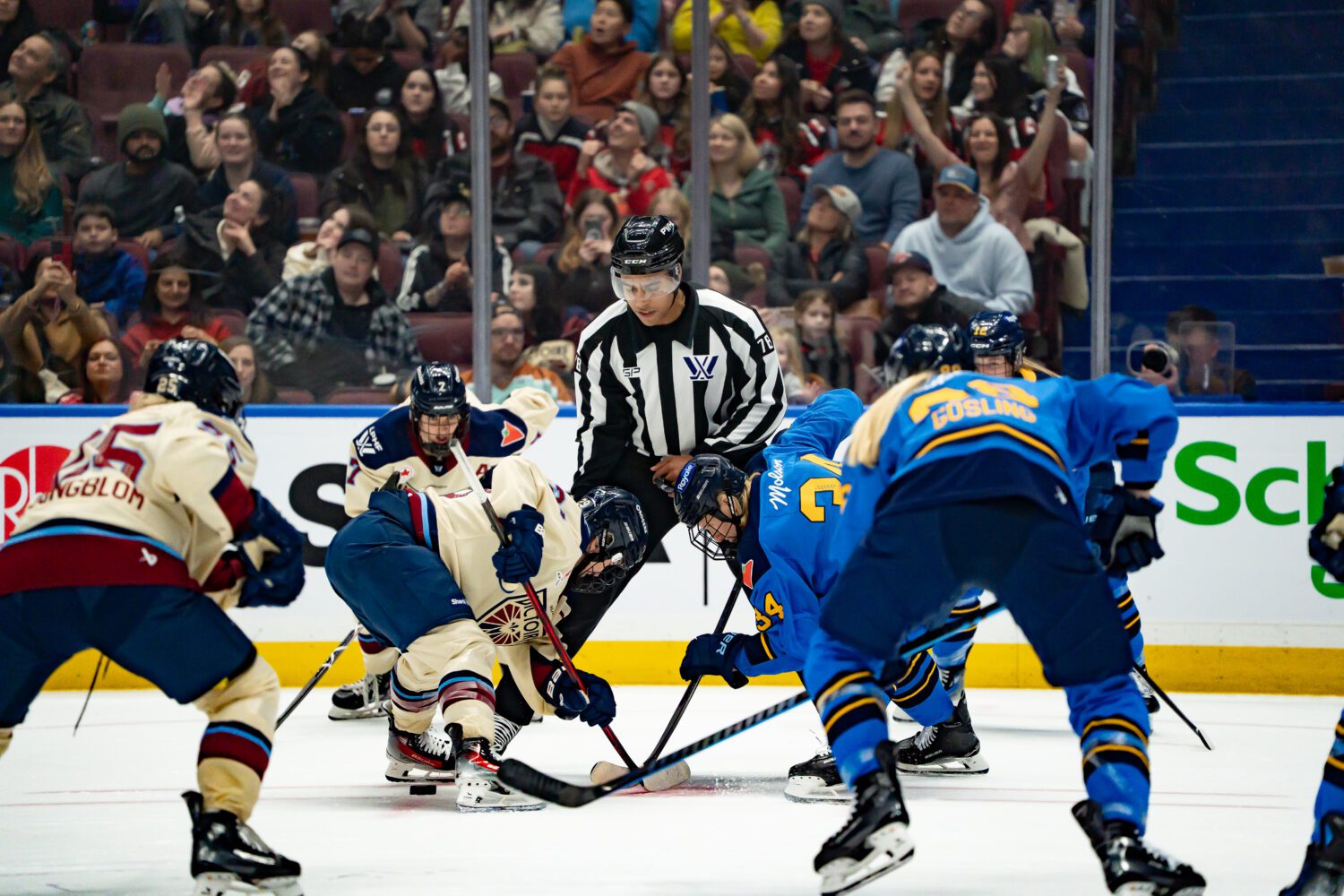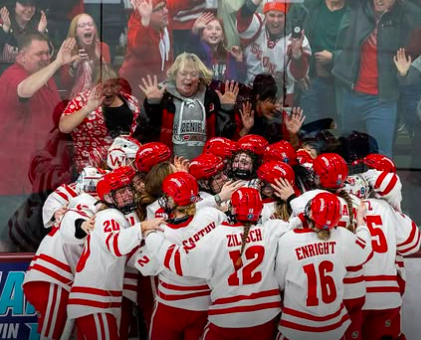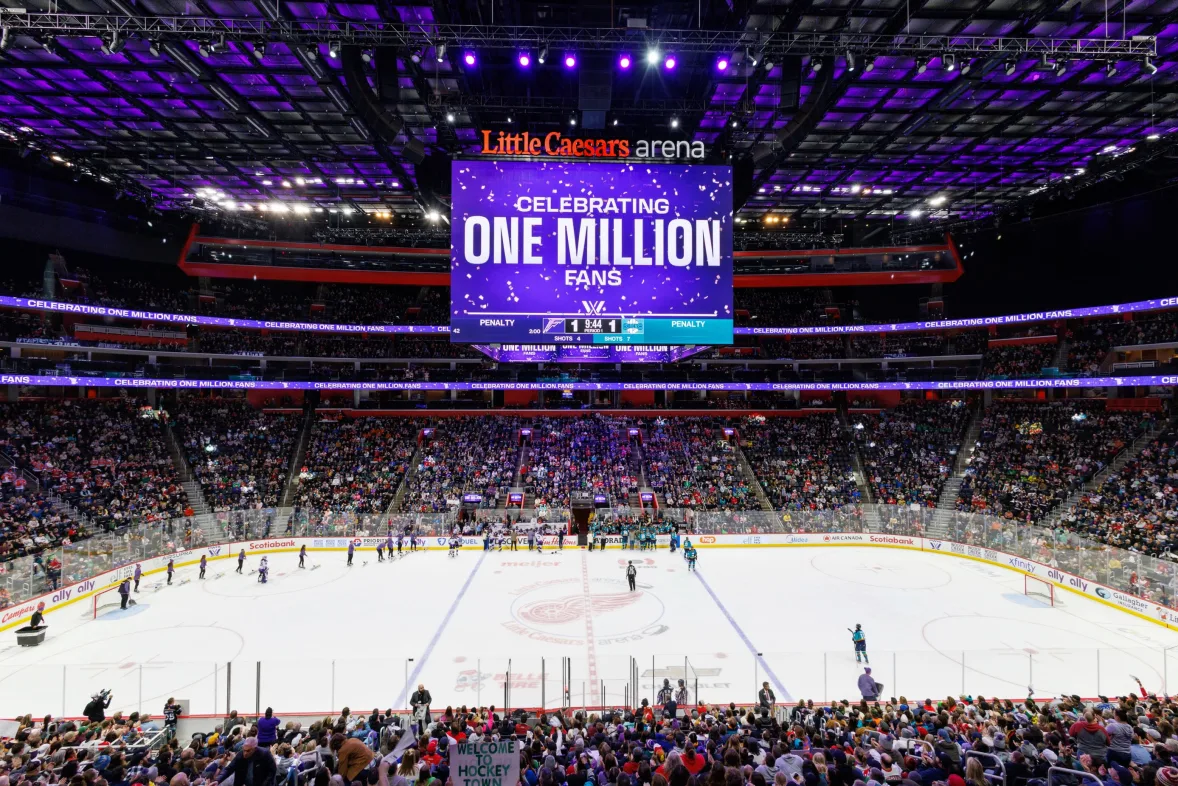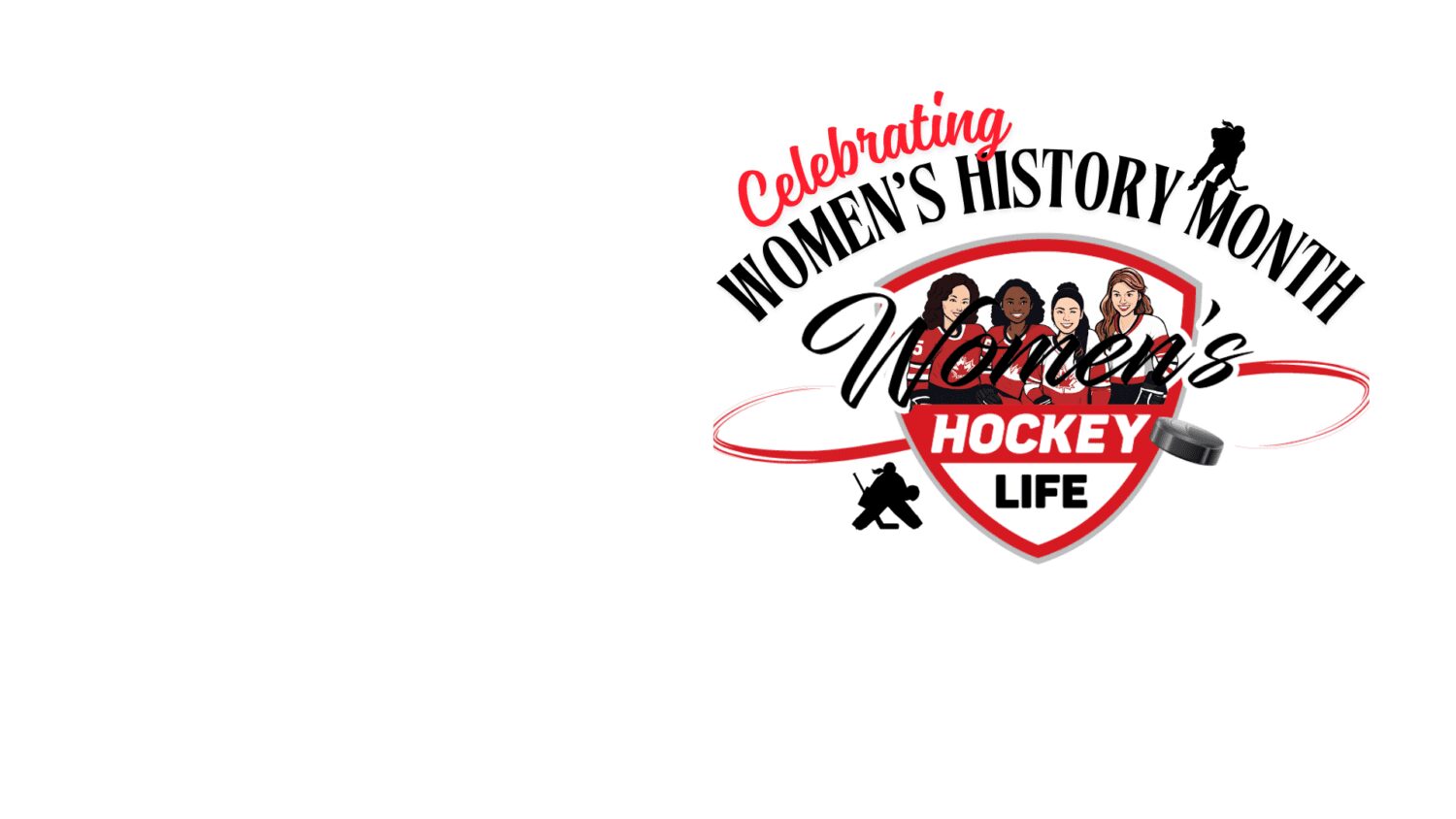The first American superstar in the history of the CWHL, Molly Engstrom was a highly likeable player whose quiet dignity and fundamentally sound game made her an invaluable member of the Brampton Thunder’s blueline unit. Scoring the CWHL’s first-ever championship clinching goal, it elevated her to a celebrated place in league lore, earning a cherished place in the hearts and minds of Thunder fans.
Worth noting, Engstrom was also the first in a growing number of superstars from the University of Wisconsin who would grace CWHL ice, which included Brianna Decker, the 2015 CWHL Rookie of the Year, Meghan Duggan, and Hilary Knight, the first American player to capture league MVP honors. Such a distinguished group was later followed by a second generation of Badgers stars that comprised the likes of Melissa Channell, Sarah Nurse, Alex Rigsby and Blayre Turnbull.
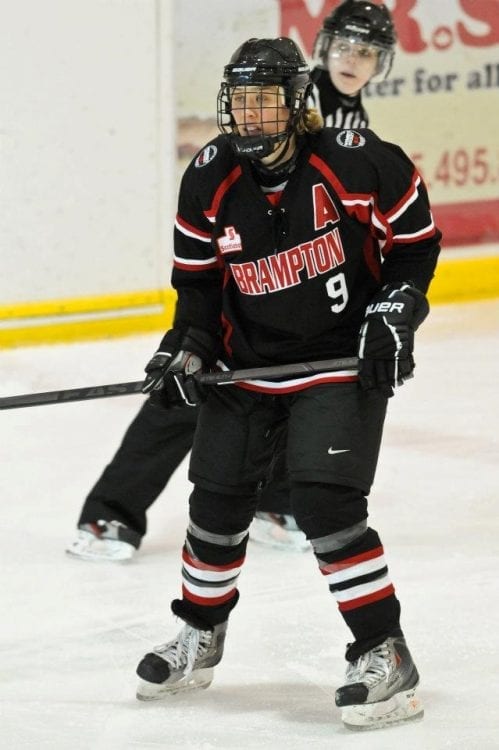
With a career highlighted by a pair of podium finishes in women’s ice hockey at the Winter Games (2006, 2010), Engstrom’s world-class abilities quickly gained her acclaim in CWHL circles. In the aftermath of the league’s inaugural season, the accolades included a spot on the 2007-08 CWHL’s Central Division All-Star Team, which featured teammates Cindy Eadie and Jayna Hefford. Also earning a spot on the CWHL’s first-ever All-Rookie team, Engstrom sharing the honor with goaltender Christine Dufour of the Québec Avalanche, Bobbi-Jo Slusar, a former teammate with the Wisconsin Badgers, while the forwards included a trio from the Montreal Stars: Leslie Oles, Marie-Philip Poulin and Katie Weatherston.
Among the stars from that early era, the one who had the most profound influence on Engstrom also skated alongside her in the Stars and Stripes at the 2006 Torino Winter Games. Having called the Thunder her club team since the years of the original NWHL, Kathleen Kauth was among the group of women who would help co-found the CWHL, known colloquially as the “Sensational Seven”.
Seeking consultation from Kauth, a subsequent visit to Toronto (located 44 km southeast of Brampton), would lead to Engstrom’s decision. Adding lustre to the opportunity to join the professional ranks was the chance to call Kauth a teammate once again. Logging 17 points in the inaugural CWHL season, it would serve as the last hurrah in Kauth’s inspiring athletic career. In later years, Kauth would also serve on the coaching staff of the iconic University of Toronto Lady Blues varsity ice hockey team.
“There was really no where for us to play at the time I decided to go check out the CWHL in 2007 after I graduated from Wisconsin. I knew of the league a bit, I knew it was really our only option and because I was mobile, I did not hesitate to check it out.
I reached out to Kathleen Kauth, who I knew was playing up in Brampton. She told me a bit about the league and team so went up for a visit basically. Spent the weekend in Toronto with her and got a feeling for the city and what was up there. It was great. I loved it and ended up there that season.”
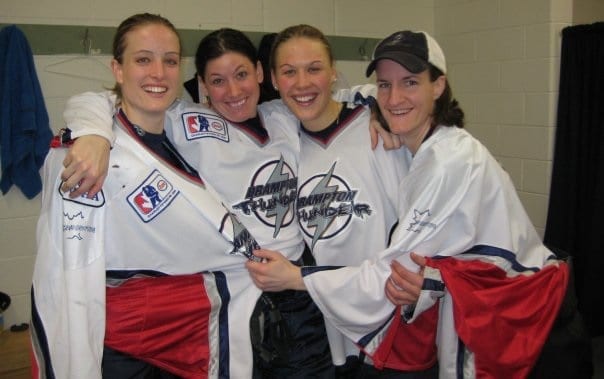
Among the most unique aspects of the Thunder’s impact on the Canadian female hockey landscape was the fact that numerous American-born players wore its colors in both NWHL and CWHL play. Beginning with Sue Merz in the aftermath of the 1998 Nagano Winter Games, an unfolding legacy would include the likes of goaltender Mandy Cronin, a CWHL co-founder and a charter member of the Boston Blades.
In later years, Megan Bozek, who skated for Team USA at the 2014 Winter Games possesses a hockey resume with experience that included a season with the Thunder’s eternal rivals, the Toronto Furies. Having also skated for the Thunder, after they departed Brampton for the York Region city of Markham, Bozek also skated in the inaugural CWHL All-Star Game. Akin to Engstrom, Bozek would also enjoy championship triumph as a member of the Thunder, capturing the 2018 Clarkson Cup.
“Yes! I am definitely honored to be a part of that legacy. I have played with all of those players at some point with the exception of Sue Merz who I have somewhat recently met and have built a great friendship with. All really upstanding people.”
Facing off against the Mississauga Chiefs in the first-ever CWHL championship game, contested at Brampton’s Powerade Centre, a pairing of two of the league’s finest teams, an intense contest that saw each roster pot three goals over three periods of dramatic play, required overtime in order to decide the victory. Scoring the championship-winning goal against Chiefs’ iconic backstop (and CWHL co-founder) Sami Jo Small, Engstrom’s heroics translated into the landmark moment of her Canadian hockey narrative. Teammate Lori Dupuis, who would eventually become the Thunder’s General Manager, garnered postseason MVP honors, assisting on Engstrom’s goal, undoubtedly one of the greatest goals in both CWHL history, and modern Canadian professional women’s ice hockey.
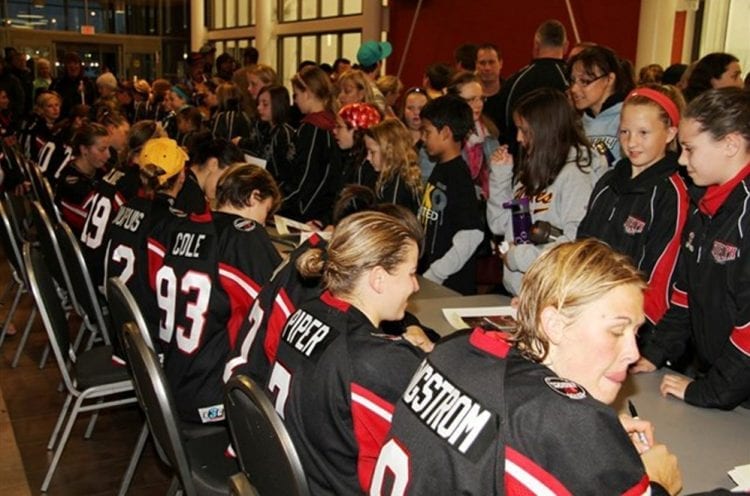
Ironically, the Chiefs and Thunder would renew rivalries in the gold medal game of the 2008 Esso Women’s Nationals in Charlottetown, Prince Edward Island. A longtime precursor to the Clarkson Cup, with teams traditionally from each of Canada’s provinces participated in Club Team or Senior Women’s play, the winning team of the Esso Women’s Nationals earned the Abby Hoffman Cup, while the Fran Rider Cup was awarded to second place, and the third place team gained the Maureen McTeer Trophy.
With a field of rosters in Club Team play that also included the Calgary Oval X-Treme and the Minnesota Whitecaps of the now-defunct Western Women’s Hockey League (WWHL), teams that would also qualify for the inaugural Clarkson Cup in 2009, the Thunder enjoyed a 2-0 advantage in the third period. With Mississauga mounting a comeback, forcing another overtime frame in their epic rivalry, the momentum remained in their favor, as Cherie Piper scored the overtime-clinching goal, claiming the Abby Hoffman Cup.
Awarded the Fran Rider Cup, there was a unique tinge of coincidence for the Thunder. Back in 1967, Canada’s centennial year, Rider played for the Brampton Canadettes, an earlier incarnation of the Thunder. Adding to the haul of hockey hardware at the Esso Women’s Nationals, was Badger alum Slusar gaining the Top Defender award. While the 2007-08 season would reach its summit with Engstrom capturing a gold medal with the Team USA at the 2008 IIHF Women’s Worlds in China, the overtime-winning goal remains a cherished aspect of Engstrom’s on-ice saga,
“That was awesome, so fun! I remember it like it was yesterday, honestly because it was a big moment but I’ll never forget the on ice celebration and the team that year. We just had a lot of fun, I was happy, training full time, playing hockey, living in Canada, it was perfect. I was in a really good place. Can’t beat those moments.”
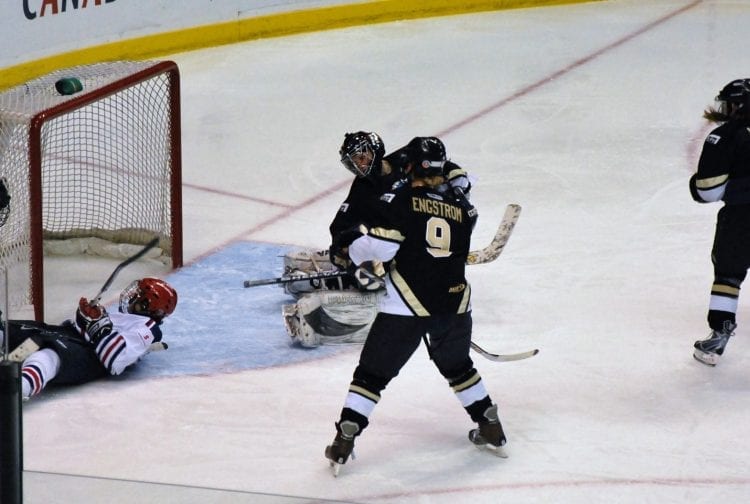
In the immediate aftermath of the inaugural CWHL season, Engstrom returned stateside, skating for the Minnesota Whitecaps during the 2008-09 Western Women’s Hockey League season. Part of a star-studded roster which included Caitlin Cahow, Julie Chu, Jessica Koizumi and Angela Ruggiero, all teammates from the US National Team, along with iconic goaltender, Manon Rheaume, whose appearance with the Tampa Bay Lightning in a 1992 NHL preseason game, inspired an entire generation of girls to take up the game. Together, this superlative group was instrumental in propelling the Whitecaps to a historic appearance in the inaugural 2009 Clarkson Cup Finals, challenging the Montreal Stars.
Returning to the CWHL following the 2010 Vancouver Winter Games, where she earned the Directorate Award for Best Defender, complemented by Media All-Star honors, a performance that teamusa.org declared in October 2015 as one of the 16 Great Olympic Performances in US women’s ice hockey history, Engstrom’s superlative skills were a welcome boon for the Thunder. Qualifying for the Clarkson Cup Finals, part of a competitive field which included the defending champion Montreal Stars and familiar archrival Mississauga Chiefs, Engstrom became the first player in Cup history to appear in consecutive finals with two different teams.
Coincidentally, Engstrom would face off against her former team, as the Whitecaps returned to the championship stage. Despite the fact that the Whitecaps would emerge victorious, Engstrom becoming the first player to lose consecutive Cup finals with two different teams, it was later duplicated by USA teammate Meghan Duggan, as she lost the first two Isobel Cup finals with different teams (Buffalo – 2016, Boston – 2017). Engstrom earned the respect of teammates and opponents alike, earning the Top Defensive Player honor.
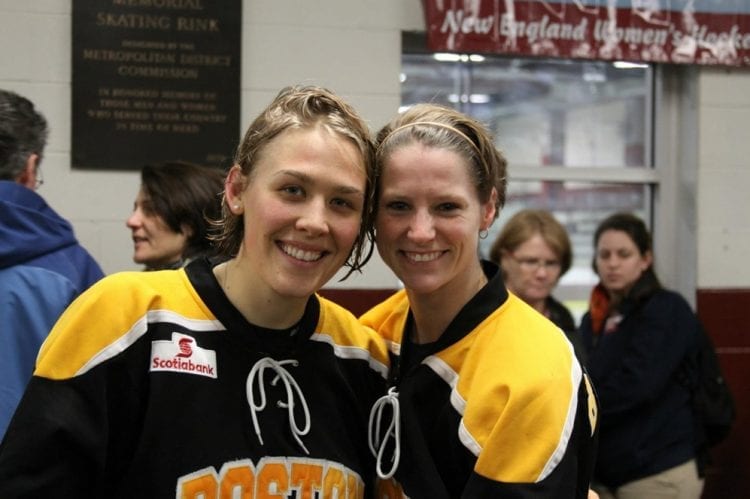
Over the course of the next two CWHL seasons, Engstrom would return to the Clarkson Cup finals, adding further accolades to her growing impact in Thunder lore. Earning 2010-11 Second Team All-Stars, there was a unique connection to her USA Hockey heritage. Joined by Sam Faber on the Second Team All-Star, they would call each other teammates with the Connecticut Whale in the autumn of 2015. Coincidentally, former Whitecaps teammate Ruggiero was on the 2010-11 CWHL First Team All-Stars, having switched allegiances with the Boston Blades
Eventually, Engstrom’s CWHL journey would bring her to the Blades, the first American-based team in league history. With a roster that featured a handful of Badgers alumnae, including Duggan, Lawler and Knight, the 2012-13 season should have signified a renaissance for Engstrom. As a side note, the absence of her leadership affected the Thunder defensive corps. By season’s end, the club not only amassed 26 more penalty minutes than the season prior, its goal differential slipped from +22 to a distressing -12.
Unfortunately, Engstrom experienced her own woes in the black and gold. Scoring a goal versus Team Alberta on December 8, contributing in a 3-1 triumph, the final day would signify her final appearance on CWHL ice. Compounding her woes was a changing of the guard with the national team, resulting in a conflict of personalities. For a player of Engstrom’s calibre, such a compelling figure who helped shape the narrative of the nascent CWHL, a better conclusion was certainly merited. Considering that the season finished with the Blades capturing their first Clarkson Cup in franchise history, a prize that eluded Engstrom thrice, it was a moment that would have been made better had she been able to contribute to this epic achievement.
“That was a really tough year for me personally. I honestly do not remember it all that well. I was struggling with Katy Stone who had just taken over the US national team. I actually moved to Boston to get in front of her, she was not scouting north of the border at that time. It was a bad mix and did not last long, I was not able to be present and enjoy those moments unfortunately. But, that’s hockey and life. Cannot always be smooth! I can say, however, those years in Canada are years I would not replace for anything. Best time of my life.”
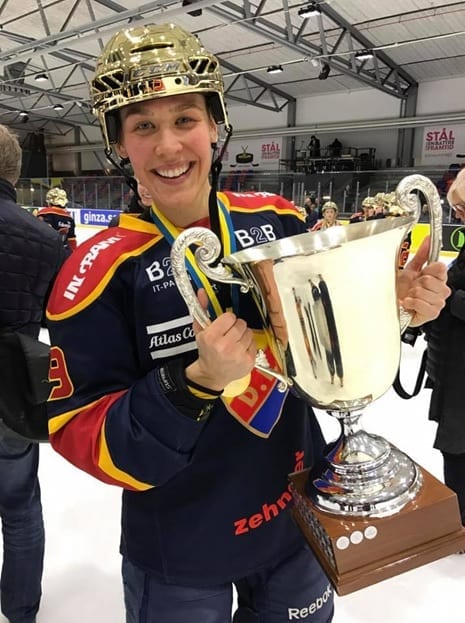
Fittingly, Engstrom was able to return to the professional ranks, finishing her career on her own terms, one of the aspects that Whale General Manager Harry Rosenholtz mentioned in his attempt to lure Engstrom back to competitive play. Enjoying 25 appearances with Connecticut Whale, including the honor of the captaincy in her second season, she would actually finish her career across the Atlantic.
Joining Djugardens IF in January 2017, based in Sweden’s SDHL’s, a roster that featured a collection of stars from various nations, including Austria’s Andrea Dalen and Russia’s Yekaterina Smolina, became much stronger with the seasoned Engstrom. Joined on the roster by fellow Americans Samantha Hanson, Tori Hickel and Delaney Middlebrook, Engstrom captured her first professional championship since 2008, when her fateful goal provided the Thunder the inaugural CWHL championship.
Returning to Djugardens for the 2017-18 SDHL season, Engstrom, along with Hickel, comprised a group of North American talent that featured Carrie Atkinson, Gracen Hirschy, Amy Menke, plus Halli Krzyzaniak, a member of Canada’s national team, contributing towards a return to the postseason. Despite a second consecutive championship eluding the proud club, the second half of Engstrom’s professional career was one built on redemption and rejuvenation.
Worth noting, Atkinson, Hickel and Krzyzaniak joined the CWHL for what proved to be the league’s final season in 2018-19. With the visceral announcement of the league’s termination, it evoked powerful memories for many former players, including Engstrom. At a time when the anticipation for the Vancouver Winter Games heightened the on-ice tensions between Canada and USA, evoking memories of the 1998 and 2002 Winter Games, when both tournaments intensified the growing rivalry, Engstrom’s presence, followed by Karen Thatcher with the Vaughan Flames, on CWHL ice set a special precedent.
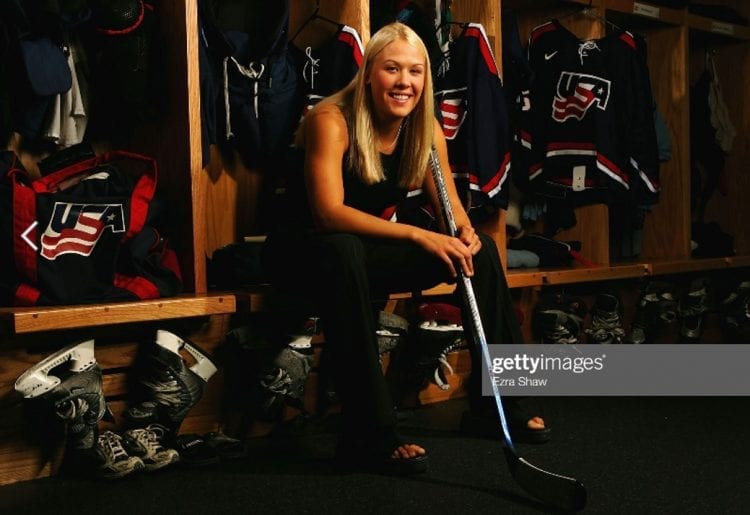
With such elite players gracing the ice in the Canadian fans’ “backyard”, it allowed said fans an opportunity to appreciate them as not just tremendous athletes, but as people who are even more tremendous. With postgame autograph sessions allowing the cherished chance to meet their female hockey heroes up-close, the graciousness of these American-born stars presented a completely new light on the fans perceptions.
Gaining the treasured prospect of getting acquainted with the likes of Engstrom, it not only provided perspective on the rivalry, one that would later be built on mutual respect, rather than the friction that existed prior, enlightening the Canadian fans to the fact that the women of American hockey underwent the same struggles and sacrifices that their homegrown stars endured.
Considering that later years saw Hilary Knight aligned with Montreal, while Calgary experienced its own American invasion, with a triptych of gold medal talent that included Kacey Bellamy, Brianna Decker and Alex Rigsby, all instrumental in leading Calgary to its second Clarkson Cup triumph, Engstrom’s legacy involved serving as the catalyst in the movement of American superstars to the CWHL. Indeed, the popularity of players such as Engstrom made the concept of the league expanding to the United States much more viable.
Undeniably, Engstrom’s peerless proficiency only added to the high quality of play, with the level of talent on each side playing with the same drive and force reminiscent in Canada versus USA contests, supplying league aficionados with an exceptionally professional product that entertained and edified, raising awareness of the greatness of the female game.
With the Canadian seasons serving as some of the most memorable in Engstrom’s post-university years, the feeling of enjoyment and gratitude is one certainly reciprocal among player, teammates and fans. One made much richer by the procession of other American-born stars, building on a proud legacy while redefining a revered and distinguished rivalry that positively shaped the growth of the professional game, Engstrom shall always remain a sentimental favorite in the hearts and minds of Canadian fans, thankful for her commendable efforts.
“I mean it did not get more competitive than that. I loved that about that league and playing with and against those players. I built a lot of really nice friendships, met some really great people. I enjoyed the league and all of the teams around the league.
My high was probably playing not only with Canadian national team players on my team who I got to play with in games and compete against in practices, but they were some of the best players in the world, top of the top now legendary players. I was lucky enough to play with Vicky Sunahara when I first got there and played every season with Jayna Hefford, Cherie Piper, Lori Dupuis, (and) Speedy Creek’s Bobbi Jo Slusar snuck in there for a year or two. Those days made me better every day and the player I eventually became.”
All quotes obtained first hand unless otherwise indicated
Featured image by Dave Holland
[adrotate group=”1″]
Related Articles
Categories
Recent Posts
[adrotate group=”2″]

